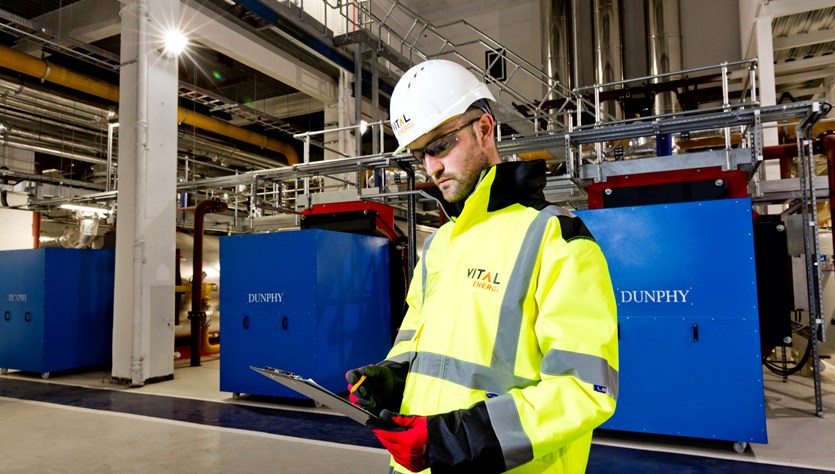The University of Strathclyde created "The Strathclyde Commitment" which was a range of initiatives designed to enhance the socio-economic benefits from the delivery of their £20m energy project. We worked closely with them to maximise local and regional budget spend, employment and training opportunities as well as working with local schools and embedding education at the heart of the project.
The University of Strathclyde is investing £1billion pounds over a 10 year period to improve its campus and create an ideal working and learning environment for students and staff. As part of this work we have created a £14.5m project to refurbish their existing John Street Boiler House, introducing CHP Technology, new boiler and thermal stores and a campus-wide district heating network.
To ensure the local economic and social benefits are maximised, the University created The Strathclyde Commitment which clearly set out a series of spending, employment and social measures which it expected the winning contractor to meet as well as inviting them to suggest additional initiatives which would benefit the community. These were formally submitted as part of the tender process.

Whilst we have developed our supply chain and sub-contractors over decades, with a strong focus on health and safety and quality, we constantly try to expand this to incorporate smaller, local businesses to realise social and economic benefits. In the initial stages, smaller and medium sized enterprises may not necessarily have the H&S standards we require or the resources to meet other requirements. Our approach has adopted a national standard, using the ‘Safe Contractor’ and meaning any investment in accreditation results in more benefits the supplier than the single project. Additionally, Safe Contractor provides a learning and improvement platform for smaller organisations to develop and implement improved standards.
We have engaged with local supply chain at the earliest possible opportunity, educating them about the work packages available and supporting them to meet the nationally recognised industry benchmarks.
On this project we carried out a well-publicised, dedicated supply chain event. These were run by the people who would be directly involved in the project and included senior Quantity Surveyors, Commercial Managers, Project Directors and H&S Directors who could describe both the opportunities and the requirements.
The presentations described a range of work packages on offer and covered various disciplines such as mechanical contractors, water treatment and commissioning, BMS, insulation, builders, demolition, mechanical and electrical suppliers, pump manufacturers, ventilation.
Whilst introducing potential supply chain to our H&S standards is important, providing ongoing assessment and support is essential to a successful project. Our SHEQ director supported engagement from the pre-construction phase and oversaw a range of measures which included full system compliance and competency audits, through to regular monthly meetings and site performance reviews. By recognising that smaller companies may not have the dedicated staff or expertise necessary for a large, multi-contractor site we were able to help several companies work on the project who would not previously have been able to. This allowed us to increase the percentage of the budget spent locally and exceed the target figure.

By leveraging our supply chain, on-site pre-fabrication facilities and on-site delivery teams we were able to offer a mixture of apprenticeships, undergraduate/paid graduate internships and work placements, not just delivering a boost to Scotland’s current workforce, but also helping the emerging talent which will contribute so much in the coming decades. These include: